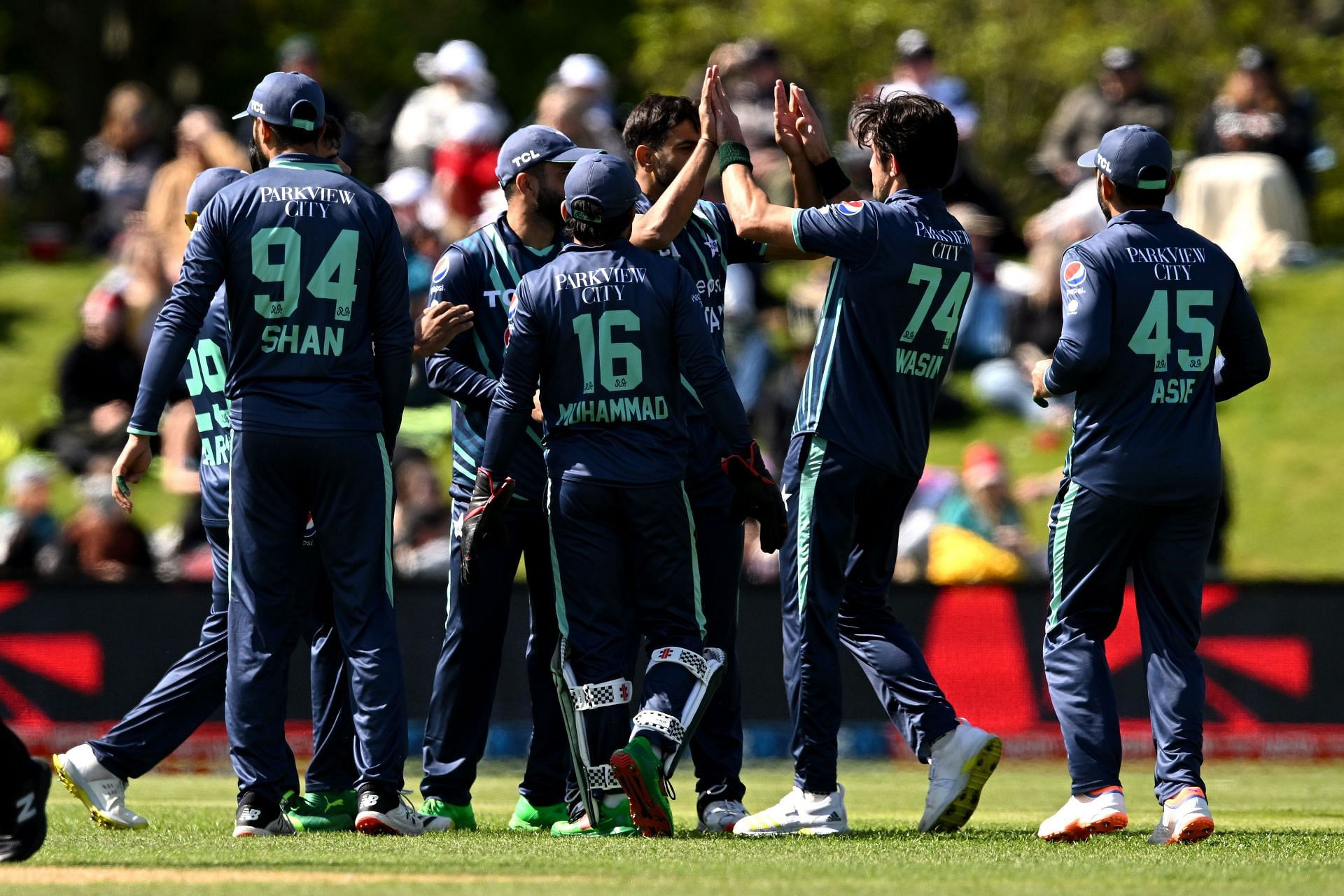Pakistan vs New Zealand: A Nail-Biting Tri-Series Final
The electrifying atmosphere in Karachi's National Stadium crackled with anticipation as Pakistan and New Zealand faced off in the final of the Tri-Nation Series. The match promised excitement, and it certainly delivered, culminating in a thrilling contest that kept fans on the edge of their seats.
A Record-Breaking Innings
Pakistan, winning the toss and electing to bat first, displayed a mix of aggressive batting and cautious consolidation. Babar Azam, the Pakistan captain, was in scintillating form, showcasing his exceptional talent and becoming the joint-fastest player to reach 6,000 ODI runs, equalling Hashim Amla's record. His innings, though ultimately cut short, was a masterclass in elegant strokeplay. He smashed boundaries with ease, demonstrating his ability to dominate any bowling attack. His dismissal, however, came as a shock, caught and bowled by Nathan Smith in the 12th over for 29 runs off 34 balls. This was a strange end considering how good he was looking just before that. But then, he did just become the joint-fastest player to 6000 ODI runs.
Meanwhile, Mohammad Rizwan and Salman Ali Agha, formed a crucial partnership, demonstrating their resilience and steadiness in the middle overs. Their partnership provided a much needed cushion after Pakistan lost an early wicket and saw off a hostile spell of fast bowling from Naseem Shah and Shaheen Afridi. They had formed a record-breaking partnership of 260 runs against South Africa in the earlier match, and were again critical in navigating Pakistan to a decent total. They reached a 50-run stand in the 12th over.
Late-Innings Surge
Tayyab Tahir provided a late surge of runs for Pakistan, adding some much needed momentum to the innings with a 38-run knock off just 33 balls. However, this could not cover for some poor batting in the middle overs and some untimely dismissals. Faheem Ashraf also contributed with a quick cameo, but Pakistan ultimately ended up with a total of just 242 runs, all out in 49.3 overs. Will O'Rourke was the pick of the New Zealand bowlers, finishing with an impressive 4/43 in 9.3 overs. Mitchell Santner, on the other hand, provided excellent control, finishing with 2/20 in his 10 overs. Pakistan lost wickets at regular intervals, never truly able to build a substantial partnership after Babar's dismissal.
New Zealand's Chase
Chasing a modest 243 runs, New Zealand started with an early stumble, losing opener Will Young, caught by Naseem Shah for just 5 runs. However, Devon Conway and Kane Williamson steadied the ship, forming a partnership that threatened to take the game away from Pakistan. They managed to survive the initial hostile fast bowling assault from Naseem and Shaheen Afridi, but Pakistan managed to dismiss Williamson on 34 runs off 49 balls.
A Turning Point
Salman Ali Agha's dismissal of Williamson proved to be the turning point, ending a 71-run partnership between him and Conway. It gave Pakistan some renewed hope but this was still a tough target for Pakistan. This partnership had put a big dent on their chances of winning, but New Zealand continued to push ahead. A missed DRS and a dropped catch by Pakistan only compounded their problems further.
A Thrilling Finish
Daryl Mitchell and Tom Latham guided New Zealand to victory, though it wasn't a straightforward path. Despite some missed chances from Pakistan, like a dropped catch of Faheem Ashraf and a run out that could've been taken, New Zealand held onto the win. This was thanks to the partnership between the batters who paced their innings well and used the momentum towards the end to make the run-chase easy. The match highlighted the importance of partnerships in ODI cricket and the devastating impact that a single dismissal can have on a team's prospects. Mitchell's excellent strokeplay toward the end of the innings was vital in delivering the win. The match ended with New Zealand winning by six wickets. Pakistan's defense was simply not good enough on the day, but there was still a lot to be proud of for Pakistan going into the Champions Trophy.
Pakistan's Road to the Champions Trophy
This match served as a crucial dress rehearsal for Pakistan ahead of the Champions Trophy. The tournament is a highly anticipated event, representing Pakistan's return to hosting major international cricket after a long gap. The success of this match, especially in light of the ongoing security concerns in the country, will be a critical factor in influencing the country's morale and hopes regarding the Champions Trophy. The tournament will see Pakistan facing off against some top cricketing nations, which will be a huge test for the hosts. The match also highlighted some of the key areas Pakistan need to work on before the Champions Trophy.
The Aftermath: Lessons Learned
For Pakistan, the loss served as a valuable learning experience. While Babar Azam's milestone was a highlight, the team needs to focus on improving their consistency in partnerships and their ability to defend modest totals. The missed DRS and dropped catches clearly cost them in the final analysis, though the New Zealand batting should be credited as well. Despite losing, Pakistan's impressive run chase against South Africa leading up to the final showed their potential. Their strong batting was on display here, and this makes them a huge threat for the Champions Trophy, but they need to improve their bowling and fielding to truly compete at the top level. The upcoming Champions Trophy presents a fantastic opportunity for Pakistan to showcase their talent and prove they belong amongst the cricketing giants. The loss might be frustrating but it also provides the needed impetus for Pakistan to be ready for the grand event.


















